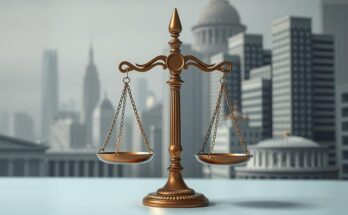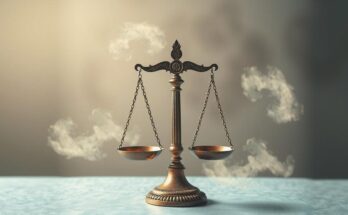In a grave revelation, the United Nations has accused the former Bangladeshi government, led by Sheikh Hasina, of employing systematic violence against protesters, potentially constituting crimes against humanity. UN human rights investigators reported that a brutal crackdown last year resulted in the deaths of approximately 1,400 individuals, predominantly at the hands of security forces, amid mass opposition to Hasina’s regime.
The investigation unveiled an alarming official directive to violently suppress anti-government protests, orchestrated by political leaders and senior security officials. Sheikh Hasina, who had occupied the prime ministerial seat for 15 years, fled to India as unrest culminated in storming her residence last August, following intense student-led protests against civil service job quotas.
Witnessed as the worst violence since Bangladesh’s war of independence in 1971, THousands were hurt during the riots following a vicious police response to the protests. UN human rights chief Volker Türk stated that authorities under Hasina were aware of, and complicit in, egregious offences during the protests.
Key findings pointed to reasonable grounds for believing that serious human rights violations were committed, including targeted killings and arbitrary arrests. The UN documented horrific incidents such as point-blank shooting of protestors, torture, and even targeting of children, who comprised an estimated 13% of the deceased.
Türk emphasised that this brutal crackdown was a calculated strategy by the past administration to maintain power amid escalating dissent. The evidence gathered painted a chilling image of state violence, highlighting the involvement of senior officials in orchestrating extrajudicial killings and torture as a means of suppressing opposition.
This report, commissioned by interim leader Muhammad Yunus, underscores the stark discrepancy between reported fatalities, giving a higher count than the government’s latest figures. The investigative team, comprising human rights experts and a forensics physician, based their findings on over 230 interviews and extensive documentation, revealing a coordinated approach to quell dissent.
The report not only implicated the security forces but also raised concerns regarding violence against those seen as supporters of the former administration, alongside religious and ethnic minorities. The UN Human Rights Office acknowledged the need for a thorough investigation into these matters.
The UN has accused former Bangladesh Prime Minister Sheikh Hasina’s government of crimes against humanity due to systemic violence against protesters, resulting in around 1,400 deaths, many at the hands of security forces. The report highlights orchestrated strategies to crush dissent and severe human rights violations including targeted killings and torture, raising grave concerns about ongoing violence against perceived opposition and minority groups.
The UN report highlights severe human rights abuses perpetrated under Sheikh Hasina’s rule in Bangladesh, with allegations of systematic violence against protesters and an alarming death toll. With accusations of crimes against humanity, the evidence points towards a calculated effort by the former government to suppress dissent through extreme measures. Furthermore, ongoing concerns regarding violence against various demographics necessitate continued scrutiny and investigation into these actions.
Original Source: www.bbc.com



